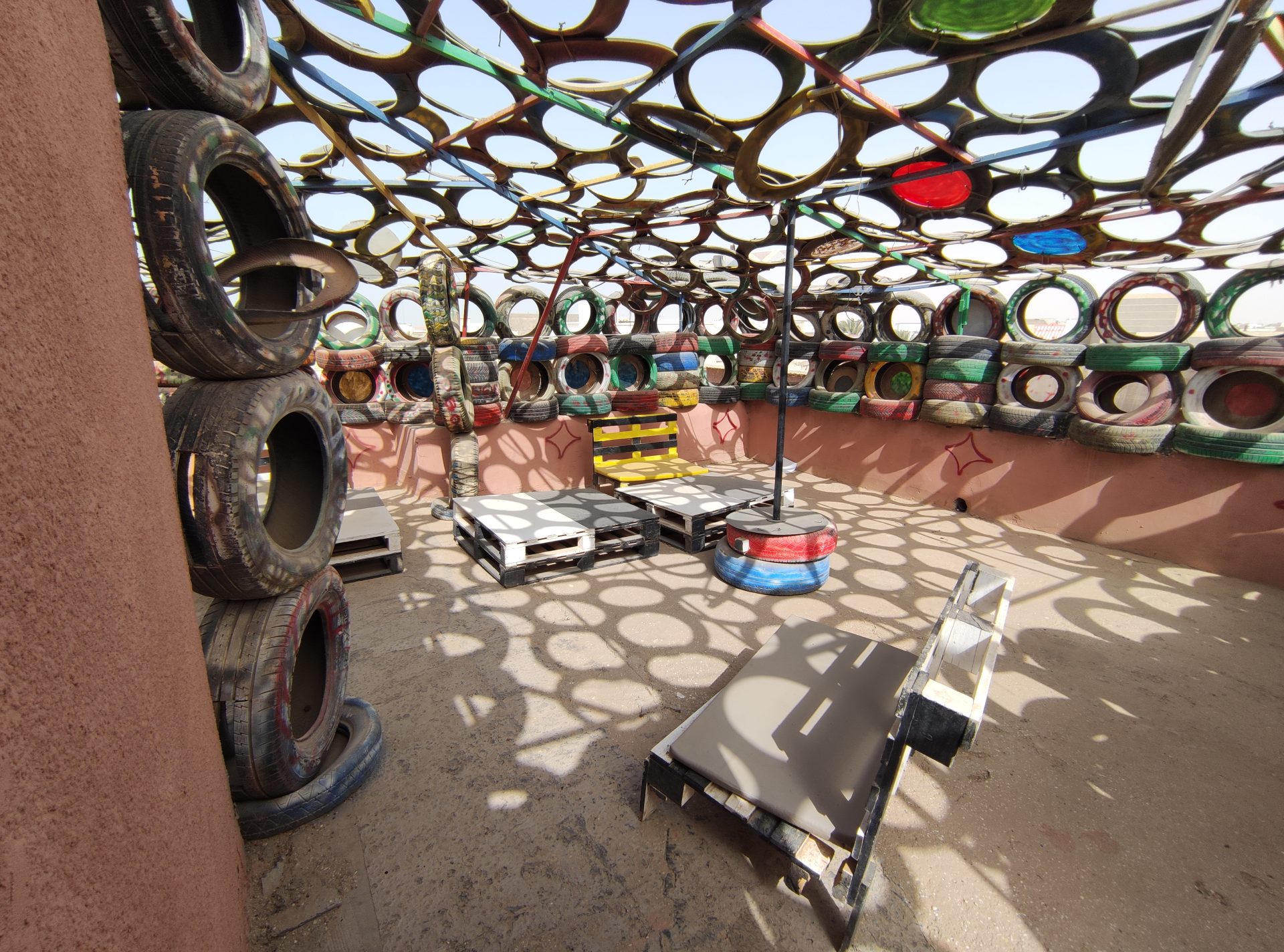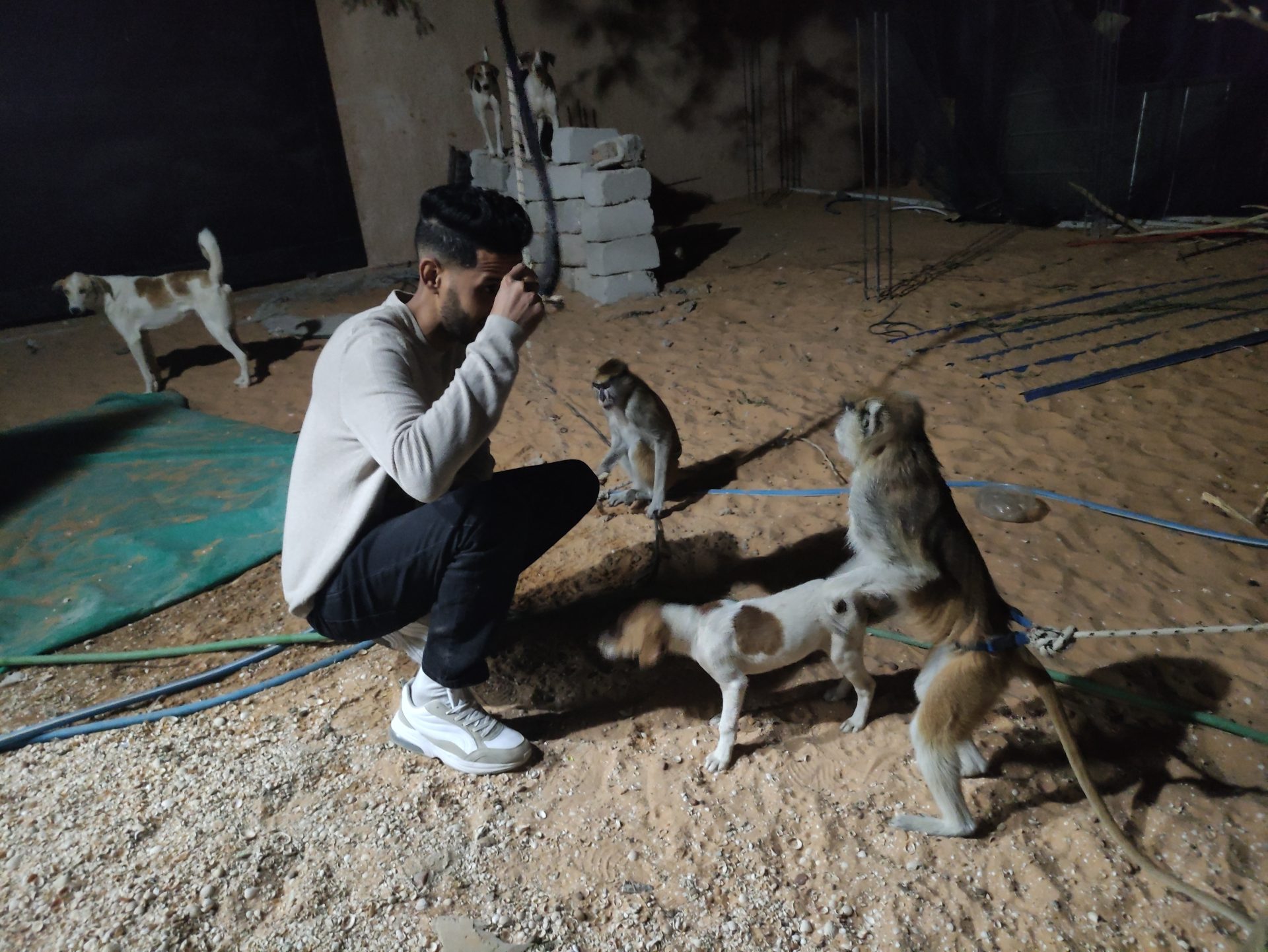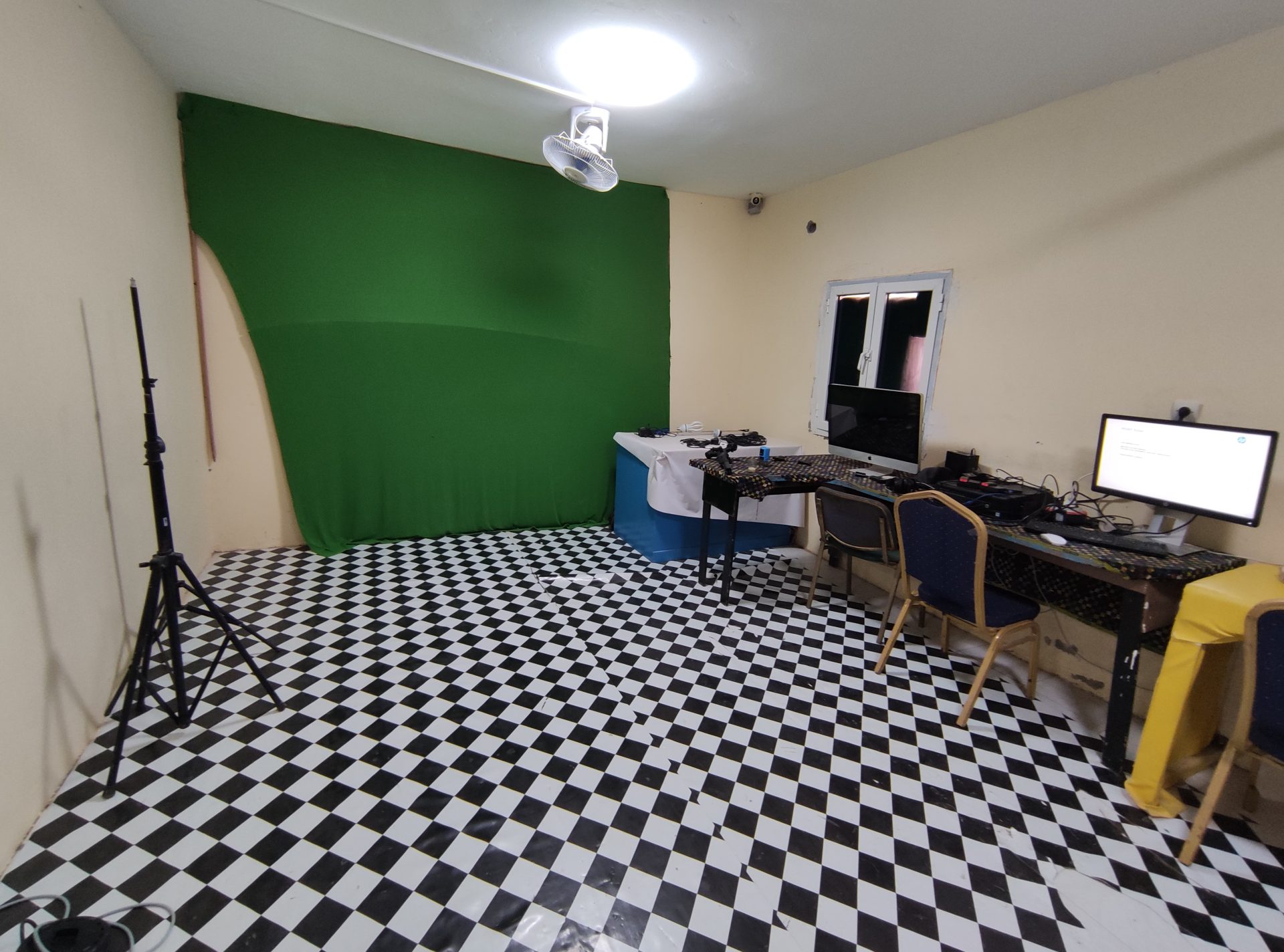I’ve been in Nouakchott (Mauritania) since 1 February, working for Assalamalekoum Cultures, a local organisation that belongs to the hip hop culture and is mainly known for two things: the annual Assalamalekoum Festival in Nouakchott, which is the biggest and by far the most important Mauritanian hip hop event, and Zaza Productions, a recording studio for video and audio productions, mainly in the field of hip hop. In addition, Assalamalekoum Cultures is also responsible for the annual Women’s Independence Festival (WIF), which takes places the fourth time in 2023 (March) and goes far beyond the field of hip hop. Assalamalekoum also offers numerous workshops, for example in the field of youth work.
When I came here a week ago, I travelled overland from Dakar to Nouakchott and can now say that the two-sided border town of Rosso has lived up to its name as the “most corrupt border in the world”. This is my third time in Mauritania and I have benefited greatly from existing contacts in finding accommodation and a few other things. I live with Laura, a Swiss development worker, together with five goats, five dogs, two Hussar monkeys and a baby cat. I can´t recall what I had expected for my first day in Nouakchott but certainly not a monkey taking my phone and throwing it into the garden.

I already started my documentary research project on hip hop and political taboos in Mauritania before I started working at Assalamalekoum. In the first days, I met old friends and was surprised how fruitful some conversations were in terms of my research. I quickly realised that, unlike what I had originally planned, Assalamalekoum would not be my only door opener into the local hip hop scene, but that there are many ways into it. Mauritanian society is closely networked. Contacts can often be made through several channels, and more often the promise for that is made. The most interesting contact so far is certainly Hamzo Bryn, one of the country’s best-known rappers, with whom I was able to talk very openly for about 5 hours a few days ago about politics, religion, hip hop, society, his music and life. I really enjoyed this conversation in an intimate atmosphere and we have arranged to meet tomorrow again. Feeding monkeys together can be a bonding experience. I know his music for a long time now and I initially expected that it would take weeks to get in touch with him but a simple “Hamzo? He´s a friend of mine” and 30 minutes later his message on Whatsapp was a lucky surprise. He is aware of my project and we agreed that we will not talk about all topics on camera, but in every way the time is very profitable and I can learn new perspectives. I also spoke to new faces who have nothing to do with hip hop but can still contribute valuable information, both on hip hop-related issues and on general political or social developments in Mauritania. I have also been able to have great conversations with artists at Assalamalekoum. What I am already noticing is that there are some topics (slavery, the killing of 28 black Mauritanian soldiers on 28 November 1990, racism, the existence of freedom of expression, the need for artists living outside of Mauritania today to leave the country) where there are such different opinions and perspectives that the question of taboo also seems to be a question of the interlocutor. It will be important for my research to have more conversations in front of the camera. I am currently working on realising this and am confident in view of the openness with which people meet me and talk about difficult topics.

By the way, there is a clear link between research and internship that was not originally intended. As of now, my internship tasks are, on the one hand, helping to promote the Women’s Independence Festival. Here I am responsible for the production and editing of videos. Today (7.2.) we shot a promotional video with the head of the EU delegation in Mauritania, ambassador Jones Guilym. On the other hand, I am mainly responsible for a new rap project called “Ma Tarishi” (Nothing new). Here’s what you need to know: Ten years ago, the Mauritanian hip hop scene was much less developed. There were fewer studios and only a few well-known artists. Some of them started a rap magazine (Chitaari [What’s new?]- Le journal rappé) in which they commented on developments monthly in the style of a news programme. The project was very successful and ran for several years. The director of Assalamalekoum Cultures, Monza, asked me to initiate the new project “Ma Tarishi”, in which a music video on everyday problems in Mauritania is to appear every 14 days. I have now made the first contacts to realise this project. In the process, the search for rappers who are interested in participating in “Ma Tarishi” and those who are available for interviews for my research project is being organised by the same people. I will continue to monitor this development and the ways It could affect the research. In any case, I hope that in a fortnight I will have done several interviews and “Ma Tarishi” will be up and running. I am being challenged and encouraged, but learning new things every day and I am very confident.


